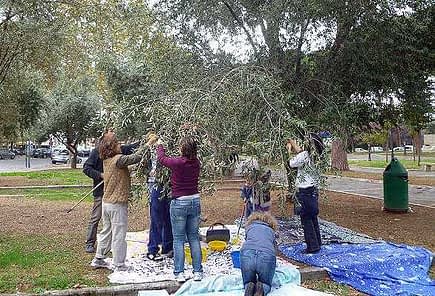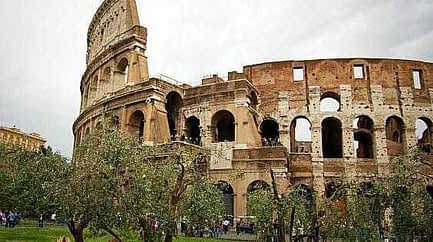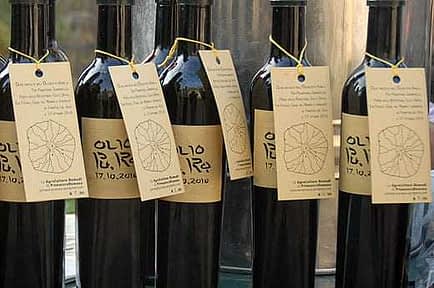Though it could sound weird to a non-Roman reader, Italy’s capital is one of the greenest cities not only in the country itself, but in the whole Europe. With around 52 thousand hectares of agricultural land and its beautiful parks and public gardens, the city has 131.7 cubic meters of green space per person.
From the Agro Romano, the “green belt” around Rome, come a lot of wonderful products such as cheeses, honey, vegetables (the “romanesche” courgettes, carrots, green beans, puntarelle or chicory sprouts), and extra virgin olive oil of course. In fact, the famous Sabina PDO also includes some areas inside the Roman province.
But what about an extra virgin olive oil coming from inside the city boundaries?
You might consider olive trees within the city merely as ornamental items, but that’s not true. Olive trees survive in abandoned fields, parks, public and private gardens — and they can still can give a good olive oil. Maybe it could be unrewarding to harvest them, maybe noone even notices them, but they are ready to accomplish their nature, and it would be a waste not to make it happen.

Olive harvest in a public park in Rome
That was the philosophy behind Olio Pu.Ro. (PUblic ROman oil), one of the “urban experience” projects by Primavera Romana (Roman spring), and undertaken in 2010 by Stalker (a group made of architects, researchers and artists, led by Giulia Fiocca and Lorenzo Romito) in order to generate and share social knowledge and awareness of urban change and to promote new practices, poetics and politics of coexistence in the emerging “beyondcity” dimension.
On that occasion, around 300 kilos of olives were harvested in different Roman boroughs, giving about 40 litres of good olive oilwhich were sold at a fair price, and an open map of the Roman public olive trees was created.
In 2011 the project gave way to orange picking from the ornamental trees in Rome, but for 2012 the oil production experiment will be repeated going beyond the city borders.

Olive trees outside Rome’s Colosseum
Primavera Romana is promoting a sort of cooperative involving both Italian and foreign harvesters (including political refugees) to pick the olives from the abandoned yards to share their own olives for the common pressing of the oil.
All the participants share the common aim to promote self-managed agricultural work, the meeting of different cultures, a new relationship between city and countryside, waste reduction and quality food production. People are also invited to report public or private abandoned olive trees, to volunteer as olive pickers, to ask for someone to harvest their own trees, or to buy the olive oil.









